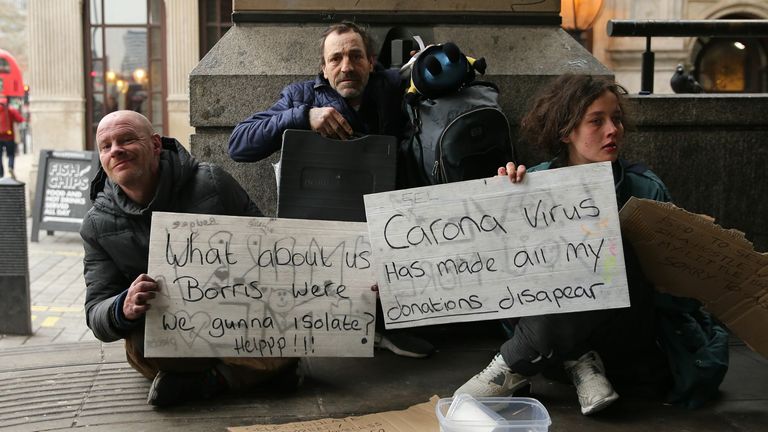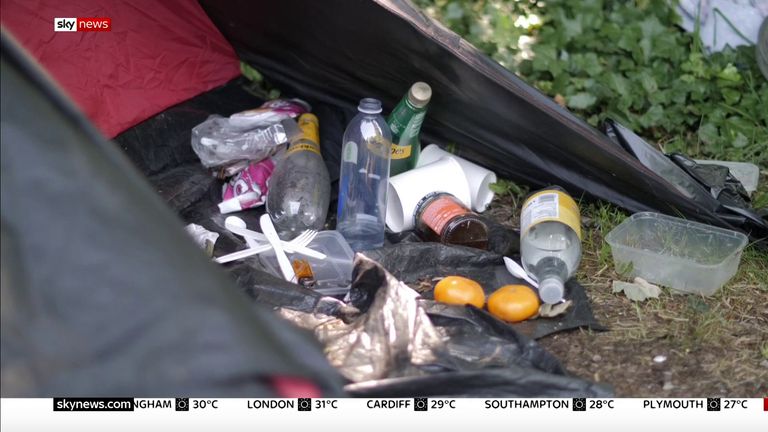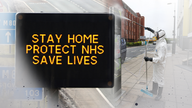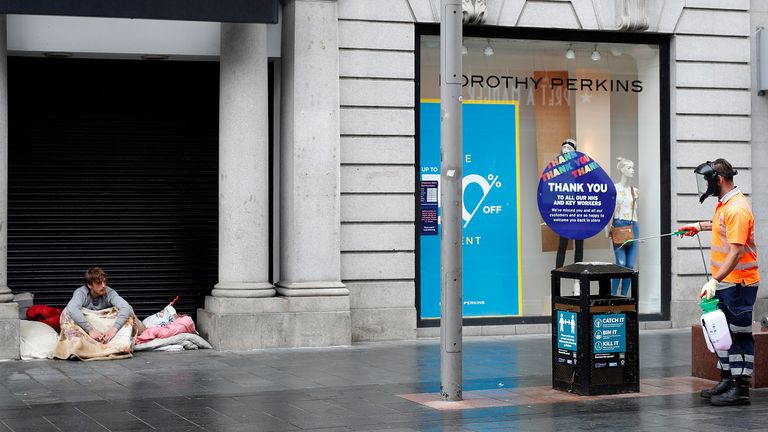Coronavirus: Hundreds of homeless lives saved due to lockdown measures, study suggests
Thousands of homeless people were put in safe accommodation as part of the government's Everyone In initiative.
Thursday 24 September 2020 05:17, UK
Emergency accommodation provided during the coronavirus pandemic may have saved the lives of hundreds of homeless people, researchers estimate.
A study by University College London (UCL) found that the use of hotels, increasing infection control measures in hostels and closing dormitory-style communal shelters possibly prevented 266 deaths linked to COVID-19.
Thousands of homeless people, including rough sleepers, were put in safe accommodation at the start of the COVID-19 outbreak as part of the government's Everyone In initiative.
Around 4% of homeless people caught coronavirus during the first wave of the virus, according to data from charities and hostels.
Researchers used computer modelling to retrospectively examine the UK's lockdown period as well as different scenarios that could occur over autumn and winter.
The study looked at 46,565 people experiencing homelessness, of whom 35,817 were living in more than 1,000 hostels, 3,616 people who were sleeping rough in 143 night shelters and 7,132 sleeping on the streets.
The data - published in the Lancet Respiratory Medicine Journal - suggests that there were 24 deaths in this group up to the end of May.
It also found that the COVID-19 preventative measures may have avoided 21,092 infections, 266 deaths, 1,164 hospital admissions and 338 intensive care (ICU) admissions of homeless people.
If the current measures remain throughout a second wave, the researchers estimate there could be 1,754 new coronavirus infections, 31 deaths, 122 hospital admissions and 35 ICU admissions between 1 June and the end of January.
However, if the restrictions are lifted, outbreaks in homeless shelters may lead to larger numbers of infections and deaths, they said.
Even without a second wave, relaxing measures in homeless settings could lead to more than 12,000 new infections and 184 deaths.
And as homelessness continues to rise, experts are calling for government action to ensure communal night shelters are not forced to reopen over winter.
Lead author Dan Lewer, from UCL's department of Epidemiology and Health Care, said: "During the first wave of COVID-19 in England, our modelling suggests that people experiencing homelessness were protected by interventions in the general population, infection control in hostels, and closing of dormitory-style accommodation."
He added: "In England, homeless people living in hostels or in emergency hotels have been offered testing when symptomatic, and occasionally mass screening exercises have been undertaken. We are not aware of any outbreaks to date.
"The results of our model suggest that closing of dormitory-style accommodation and increased infection control in single-room accommodation might have contributed to the absence of outbreaks."
:: Subscribe to the Daily podcast on Apple Podcasts, Google Podcasts, Spotify, Spreaker
Senior author, Professor Andrew Hayward, from UCL's department of Epidemiology and Health Care, said: "We urgently need alternative emergency single room accommodation so that communal night-shelters are not forced to reopen.
"The government response to COVID-19 in the homeless was world-leading but there now needs to be a renewed commitment to protecting the most vulnerable."
Kelly Tolhurst, Minister for Rough Sleeping and Housing, said: "This independent report shows that the decisive action we took at the height of the pandemic protected hundreds of lives by bringing some of the most vulnerable people in our society into safe accommodation.
"Protecting vulnerable rough sleepers this winter is a priority for this government. Our Next Steps Accommodation Programme provides the funding and support to help prevent people from returning to the streets."





